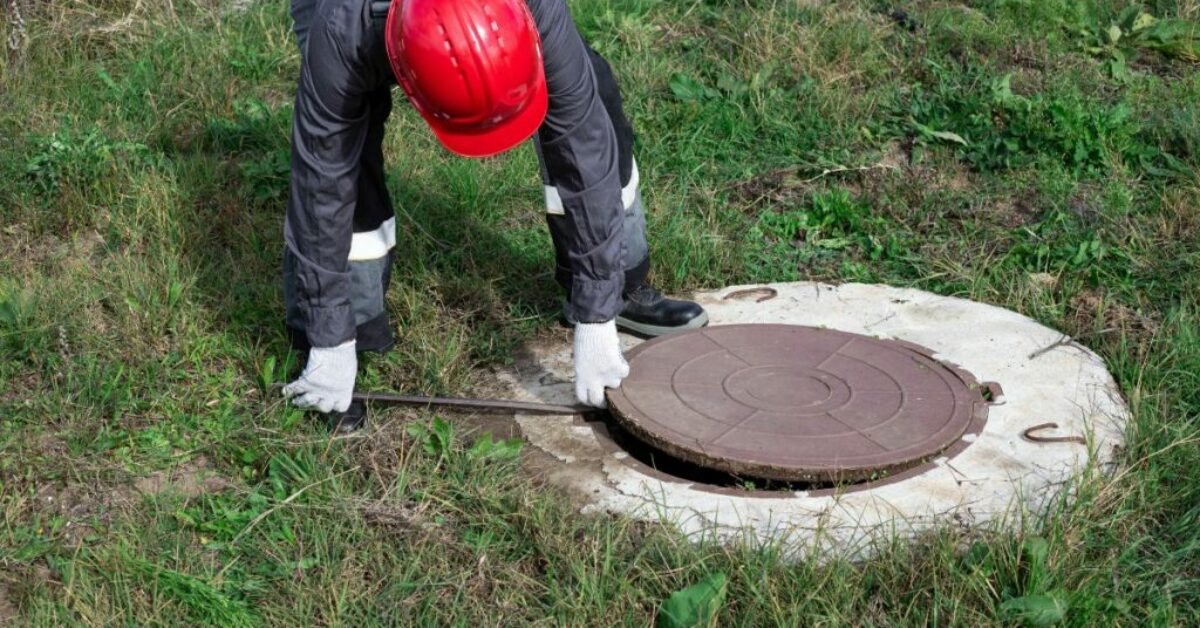How To Become A Septic Inspector?
If you’re interested in a career in the field of septic tank inspections, you may be wondering how to become a septic inspector. This profession requires a unique set of skills and qualifications, and it’s important to have a solid understanding of what the job entails, as well as the steps involved in pursuing this career path. In this article, we’ll take a closer look at the skills and qualifications required to become a septic inspector, as well as the benefits of working in this field.
Steps To Becoming A Septic Inspector
To become a septic inspector the following steps are necessary:
- Achieve Educational Requirements
The first step in becoming a septic inspector is to research the educational requirements and certifications necessary for this job. Most employers require a minimum of a high school diploma or GED, though some may prefer candidates with an associate’s or bachelor’s degree in a related field, such as environmental science or civil engineering. This education will provide you with a solid foundation of knowledge that you can build upon as you gain experience in the field. You’ll learn about the different types of septic systems, how they function, and the various factors that can impact their performance.
- Become Certified Or Licensed
Additionally, many states require specific certification or licensing for septic inspectors, so it’s important to research the requirements for your state and ensure that you meet all the necessary qualifications. This may involve completing a training program or passing an exam to demonstrate your knowledge and skills in the field.
- Gain Hands-on Experience
Once you have the necessary educational qualifications, the next step is to gain hands-on experience in the field. Many septic inspectors begin their careers working for septic tank installation or pumping companies, where they can learn about the different types of septic tanks, how they work, and common issues that can arise. This experience can be invaluable when it comes to performing septic inspections, as you’ll be able to quickly identify potential problems and understand how to address them.
During your time working for a septic tank company, you’ll likely be involved in a variety of tasks related to septic system installation, maintenance, and repair. This may include digging trenches, laying pipes, installing tanks, and repairing or replacing damaged components. By gaining experience in these areas, you’ll develop a deep understanding of how septic systems function and the various factors that can impact their performance. - Acquire Tools and Equipment
After gaining some experience, you’ll need to acquire the necessary tools and equipment for septic inspections. This typically includes a camera to inspect the interior of the septic tank, as well as basic hand tools and safety equipment. It’s also important to have a reliable vehicle to transport these tools and equipment to job sites.
When performing a septic inspection, you’ll typically start by locating the septic tank and accessing it through a cleanout or other access point. You’ll then use your camera to inspect the interior of the tank and assess its condition. This may involve looking for signs of damage or wear, such as cracks, leaks, or corrosion. You’ll also check the level of solids in the tank and ensure that the tank is properly sized for the property it serves. - Build a Network
Finally, it’s important to build a network of contacts and clients in the industry. This can involve joining professional organizations, attending trade shows and conferences, and reaching out to potential clients in your area. By building a reputation as a reliable and knowledgeable septic inspector, you can attract more clients and build a successful career in this field.
Overall, becoming a septic inspector requires a combination of education, experience, and dedication. By following these steps and continually expanding your knowledge and skills, you can build a successful and rewarding career in this important field.
Skills Needed to Become a Septic Inspector
In addition to these core skills, there are a few other important traits that can help set a septic inspector apart from the rest. One of these is patience. Septic inspections can be time-consuming and require a great deal of attention to detail. It’s important for inspectors to take their time and not rush through the process in order to ensure that every aspect of the system is thoroughly examined.
Another important trait is adaptability. Septic systems can vary widely in terms of their design and layout, and inspectors may encounter unique challenges on each job. Being able to adapt to new situations and come up with creative solutions is essential for success in this field.
In addition to these skills and traits, it’s also important for septic inspectors to stay up-to-date on the latest technologies and techniques in the field. This may involve attending industry conferences and workshops, as well as keeping abreast of new developments through industry publications and online resources.
Ultimately, becoming a successful septic inspector requires a combination of technical knowledge, practical skills, and personal qualities. By cultivating these traits and staying committed to ongoing learning and professional development, aspiring inspectors can build rewarding careers in this important and in-demand field.
What is A Septic Inspector?
A septic inspector is a professional who specializes in inspecting and evaluating septic systems to ensure that they are functioning properly and up to code. Septic systems are an essential part of modern plumbing, as they treat and dispose of wastewater in areas where municipal sewage systems are not available.
Septic inspectors play a crucial role in maintaining public health and safety. They are responsible for ensuring that septic systems are properly installed, maintained, and repaired. These systems are designed to treat and dispose of wastewater in a way that is safe for the environment and the people who live nearby.
Septic inspectors may be called upon to evaluate septic systems during home inspections, as well as to diagnose and repair any issues that may arise. They use a variety of tools and techniques to assess the condition of septic systems, including visual inspections, soil tests, and water quality tests.
In addition to their technical skills, septic inspectors must also have excellent communication skills. They must be able to explain complex technical information to homeowners and other stakeholders in a clear and concise manner. They must also be able to work collaboratively with other professionals, such as plumbers, engineers, and government officials.
Septic inspectors may work for construction or plumbing companies, government agencies, or as independent contractors. They typically work outdoors and may be required to work in hazardous or dirty environments, so it’s important to take appropriate safety precautions and wear protective gear when necessary.
Overall, the work of a septic inspector is essential to maintaining public health and safety. By ensuring that septic systems are functioning properly, they help to prevent the spread of disease and protect the environment from pollution. If you are in need of a septic inspection, be sure to hire a qualified and experienced professional to get the job done right.
The Benefits of Working as A Septic Inspector
Becoming a septic inspector can be a rewarding career path for those interested in environmental health and safety. Some of the key benefits of working in this field include:
- Job security: Septic systems are a critical component of modern plumbing, and there will always be a need for skilled septic inspectors to maintain and repair these systems.
- Flexible work arrangements: As a septic inspector, you may have the option to work for a company or as an independent contractor, allowing you to set your own schedule and work on your own terms.
- Opportunities for growth: With experience and certifications, septic inspectors can advance to supervisory or managerial positions, as well as specialize in specific areas of septic system inspection and repair.
- Environmental impact: By ensuring that septic systems are functioning properly, septic inspectors play an important role in protecting the environment and ensuring safe and healthy living conditions for homeowners and the surrounding community.
Septic inspection is a crucial aspect of maintaining a healthy and safe living environment. Septic systems are responsible for treating and disposing of wastewater, and when they malfunction, it can lead to serious health and environmental hazards. As a septic inspector, you will be responsible for ensuring that these systems are functioning properly, and that they meet all local and state regulations.
Beyond the benefits mentioned above, working as a septic inspector can also be a highly rewarding career path in terms of personal satisfaction. By ensuring that septic systems are functioning properly, you will be helping to protect the health and well-being of homeowners and their families, as well as the environment at large.
As a septic inspector, you will be required to have a thorough understanding of septic system design, installation, and maintenance. This will involve a combination of education and practical experience, as well as ongoing training and certification to stay up-to-date with the latest industry standards and regulations.
Additionally, septic inspectors may also be required to have strong communication skills, as they will need to communicate their findings to homeowners, contractors, and local government officials. This may involve explaining complex technical information in a clear and concise manner, as well as providing recommendations for repairs or upgrades to the system.
Becoming a septic inspector requires a combination of education, practical experience, and key skills. With the right qualifications and a passion for environmental health and safety, this can be a rewarding and lucrative career path for those interested in the field.




